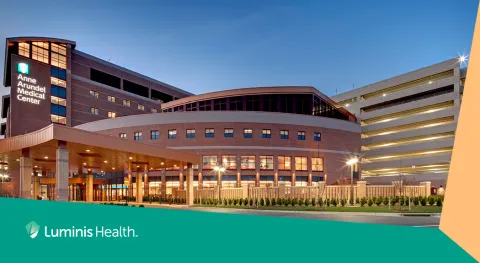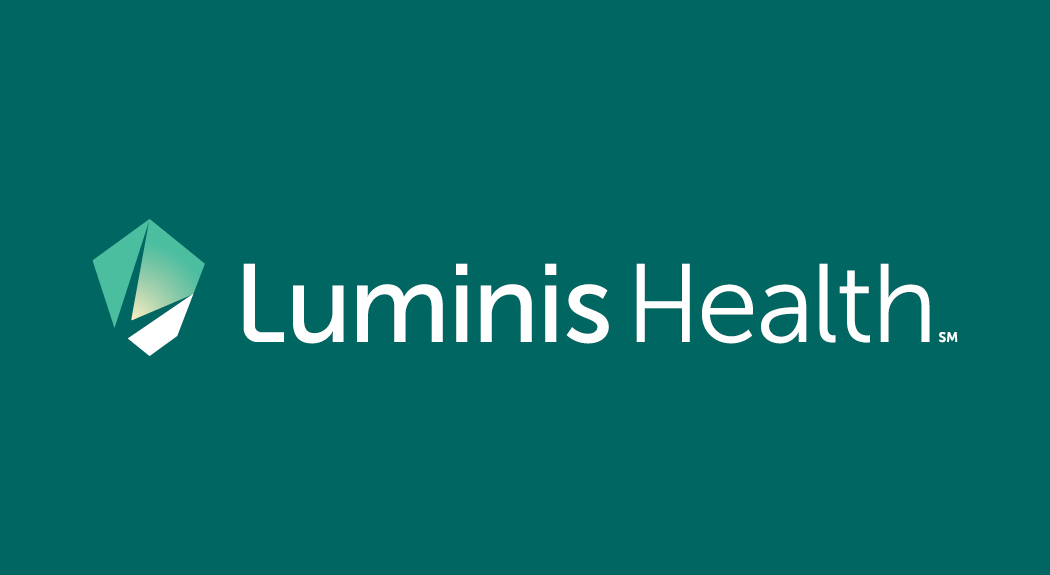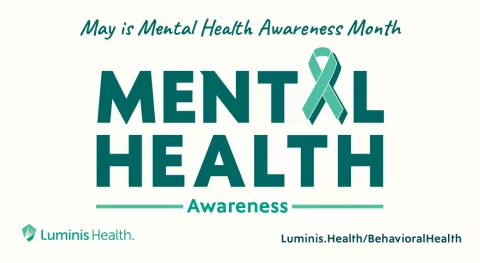by Luminis Health

It’s not a disease. It’s not a sign of a weak personality. And it’s not something to be ashamed of.
Sure. Depression drains your energy. Depression makes you sad. Depression makes you feel powerless, tired, less hungry, more anxious. But depression is not always a “bad thing.” And it’s not “incurable.”
Everyone goes through some sort of depression. In fact, depression is just part of being human. Of course, everyone experiences it differently, depending on the person, situation and circumstance. For some people, it’s clinical. But there shouldn’t be stigma associated with it.
“Do I think it’s derogatory? Absolutely not,” says Donna Phillips, clinical director at Anne Arundel Medical Center’s (AAMC) Psychiatric Day Hospital. “I think you can build strength from it. You can enjoy life and grow from it. Everyone experiences it and we all go through some form of it. You can learn from it. The key in getting better is to know what it is and how you can overcome it.”
What is depression?
Depression is a common but serious mood disorder, according to the National Institute of Mental Health. It can cause severe symptoms that affect how you feel, think and handle daily activities, such as sleeping, eating or working. Some forms of depression are slightly different or can develop under certain circumstances, like it happened to Kathy.
After battling three cancers for seven years, including one that required a hip replacement after she developed a tumor in her pelvis, and going through a divorce amidst all of it, Kathy closed this chapter in 2015 after completing her leukemia treatment. But in August 2016, she got shingles – an event she says that pushed her over the edge.
“I was really sad,” says Kathy, a 65-year-old retiree. “When I was five months into my shingles, the pain was relentless and it was really difficult to deal with.”
Kathy wasn’t taking care of herself, only ate two meals a day and slept until noon. One day, she started to feel sick while driving on her way to meet with her sons for lunch. “I only had a tea for breakfast and felt really bad, so I pulled over,” she recalls.
After calling one of her sons, she decided to go back home to meet them there. Noticing their mother wasn’t well, they encouraged her to go to the emergency room. “I admitted I wasn’t well and that I was very depressed,” she says. “I couldn’t turn it around myself, I needed help.”
Seeking help is not a sign of weakness
After an eight-day visit to Sheppard Pratt, followed by a hospital visit where she discovered she suffered from pneumonia, Kathy continued her mental health care at AAMC’s Psychiatric Day Hospital, an intensive day treatment program.
“Seeking help is a good thing,” she says. “Sometimes you have circumstances, like I did, that push you into a depression where you need help to get out of it. I was ignoring the signs, not really accepting what has happening.”
Kathy spent two weeks in AAMC’s program, which offers several mental health services. The program seeks to provide individuals with the necessary skills so they can continue to manage once they’re done, says Phillips.
“A person who suffers from depression feels isolated, but they’re not alone,” she says. “There are a lot of support groups that can help individuals talk about their situation. Our program helps people develop what we call a wellness toolbox. We talk to our patients about the importance of staying active, socially and physically, having a schedule to adhere to, having good sleep hygiene, eating healthy, and being aware of one’s automatic negative thought patterns (cognitive distortions) that provoke depression.”
Although it might seem like a simple approach, Phillips says she’s seen many patients overcome their depression and move on in life. “There are a lot of steps people can take to overcome depression,” she says. “But it’s important to note that seeking help when you can no longer cope by yourself is one of the first steps.”
Lessons learned during depression apply to life in general
Kathy says she since left treatment, things have changed for the better. “They taught me coping strategies that are helpful and now I set up an alarm to get up at 8 am or earlier,” she says. “I make breakfast for myself, I have lunch dates with my friends and now I’m looking to volunteer.”
Kathy says the biggest change is that she feels better about herself and her future. “I feel good about my life,” she says. “I have a grandson that just turned one and I realize that I have so much to look forward to.”
Although it was a challenging time for her, Kathy credits her faith and treatment for helping her look at things differently. Today, she hopes her experience can help others. She says no one should be embarrassed or afraid to seek help because there are a lot of places and organizations that are willing to help. “Depression is not an end, you can turn things around,” she says. “There is hope and life after depression.”
National Alliance on Mental Illness (NAMI): A nationwide grassroots advocacy group, NAMI represents people affected by mental illness and offers several support services, including education programs and a HelpLine.
On Our Own: A statewide behavioral health consumer education and advocacy group, On Our Own of Maryland promotes equality in all aspects of society for people who receive behavioral health services and develops alternative, recovery-based behavioral health initiatives.
National Suicide Prevention Lifeline: Help is always available. Don’t hesitate to reach out if you need help. Call 1-800-273-8255.
AAMC: If you think AAMC’s Psychiatric Day Hospital can help you or a loved one, talk to your doctor. Your doctor must refer you before you can enroll. If you are looking for a doctor who specializes in mental health, call AAMG Mental Health Specialists at 410-573-9000.
Originally published Dec. 31, 2018. Last updated Feb. 10, 2020.


